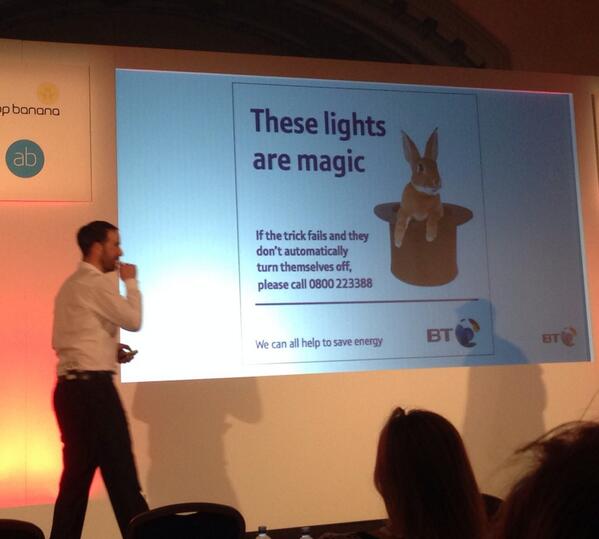 Last Thursday 1st May evening and Friday 2nd May, the Institute of Internal Communication (IoIC) held their annual IoIC Live conference. It was a brilliant event, starting with an unconference on Thursday evening and then going into a full day, on the Friday, of speakers and discussions – looking at everything from being an introvert vs. being an extrovert in the world of comms to the importance of language to looking at how neuroscience can help our communications.
Last Thursday 1st May evening and Friday 2nd May, the Institute of Internal Communication (IoIC) held their annual IoIC Live conference. It was a brilliant event, starting with an unconference on Thursday evening and then going into a full day, on the Friday, of speakers and discussions – looking at everything from being an introvert vs. being an extrovert in the world of comms to the importance of language to looking at how neuroscience can help our communications.
There were just too many exciting points to take away from the speakers at IoIC Live 2014 so we decided at Sequel to make a series of blogs, one for each speaker, that will be posted on Storyboard over the next few days, starting with a presentation by BT.
Blurred lines – how BT transformed its language internally and externally and changed its culture.
A great topic to kick off the conference – Jon Hawkins, BT Head of Brand Language and Neil Taylor, Managing Partner at agency The Writer, discussed the effects of changing language at BT.
The two speakers showed many examples of old forms of writing – usually long winded documents – put alongside newer shorter and clearer versions to show the differences.
A great illustration of this was changing their travel policy from a long piece of text, to these three sentences:
‘We’re a frugal company. But don’t show up dog-tired just to save a few bucks. Use your common sense.’
They claimed that this caused the cost of travel within the company to markedly go down, adding a commercial element to their success.

A sign asking people to turn off the lights in the toilet.
They promoted their new language changes through guidelines, workshops (training 8,000 people all around the world), E-moments (emails as a poke to remind people to keep up what they learnt in workshops), webinars and by encouraging individuals to champion the changes.
When asked by the audience, they attribute 80% of their success to good writing, with 20% to distinctiveness.
But did it really make a difference?
In short, yes – in many ways.
As well as the travel policy example mentioned earlier, they were able to measure that more employees completed their performance reviews following a change in the language used in reminder emails – where they were made friendlier and shorter.
One of their biggest pieces of evidence was the effect of changing script language in BT call centres. After talking to employees they found that important points on scripts were taking around 30 seconds to read out – a big problem in call centres where people live by call times. By ‘slashing’ the script and reducing call handling times they made things clearer for customers and managed to save £6 million in one year!
Overall, Jon and Neil managed to positively promote to their audience the great value, in a commercial sense as well as from anecdotal evidence, that can come from changing language use and tone in an organisation. Though it can be a big challenge the pay-offs of moving away from corporate speak and towards friendlier language that is audience-centric can be great.
Click here to see the IoIC’s blog about BT’s transforming language.
Our next IoIC series blog will be on IC excellence: six strands for smarter working – Russell Grossman, director of Communications at the Department of Business, Innovation and Skills.
Some of the best bits from Twitter #IoICLive14
Changing the wording of a performamce review reminder email helped to increase completed reviews #ioiclive14 pic.twitter.com/7ZUlkOKwc0
— Dana Leeson (@danaleeson) May 2, 2014
Translating ‘operational excellence’ into ‘Doing our everyday things better’ by removing the corporate voice. #ioiclive14
— Sequel Group (@sequel_group) May 2, 2014
Translating ‘operational excellence’ into ‘Doing our everyday things better’ by removing the corporate voice. #ioiclive14
— Helen Deverell (@Helenw7) May 2, 2014
If you can change just the words you change the way people feel #ioiclive14
— Institute of IC (@IoICNews) May 2, 2014